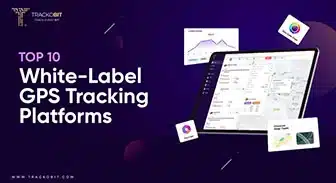-
TrackoBit
Manage commercial vehicles with the new-age Fleet Management Software
TrackoBit -
TrackoField
Streamline your scattered workforce with Field Force Management Software
TrackoField -
Features Resources
-
Blog
Carefully curated articles to update you on industrial trends. -
White Paper
Insightful papers and analysis on essential subject matters. -
Glossary
Explore an alphabetical list of relevant industry terms. -
What’s New
Get TrackoBit & TrackoField monthly updates here. -
Case Study
Explore the cases we solved with our diverse solutions. -
Comparisons
Compare platforms, features, and pricing to find your best fit.
-
About Us
Get to know TrackoBit: our team, ethos, values, and vision. -
Careers
Join the most dynamic cult of coders, creatives and changemakers. -
Tech Support
Learn about our technical support team and services in detail. -
Events
Check out the exhibitions where we left our marks and conquered. -
Contact Us
Connect with us and let us know how we can be of service.
How To Reduce Fuel Costs While Boosting Fleet Safety
- Author:Ayushi Nagalia
- Read Time:8 min
- Published:
- Last Update: December 9, 2025
Table of Contents
Toggle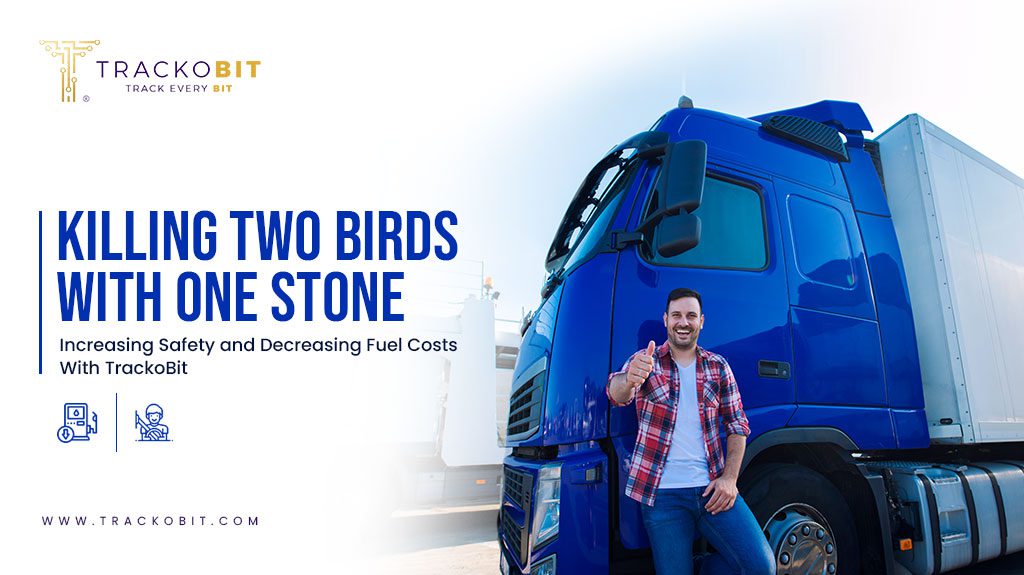
Boosting fleet functions can be delivering 100 more consignments than last month. It can also be reducing expenses while delivering only 50 consignments. Reduce fuel consumption while increasing fleet security with Fleet Management Software like TrackoBit!
Table of Contents
Toggle
Other than the primary asset cost, the major fleet expenses are:
🚩 Fuel consumption
🚩 Cost of recovery from accidents
🚩 High insurance premiums
These huge expense problems ultimately fall to optimising two segments of your operations – safety management and fuel consumption.
Therefore, in this blog, we will try to understand how to kill two birds with one stone and both reduce fuel consumption and boost safety for your vehicles.
How Are Vehicle Safety and Fuel Consumption Related?
Are you wondering how on earth are fuel consumption and fleet safety related? They seem to be two different things, right?
Well, you’re not wrong. They are two different things and yes – not every aspect of the two issues intersect. However, here are four segments where the two intersect:
🚦 Driving practices
💯 Vehicle health
🧭 Right routes
📦 Consignment management
These four factors directly affect both fleet safety and fuel consumption. So, why not optimise them all to solve all problems? Let’s discuss the role they play and how to optimise them in the following sections.
Is It Possible to Reduce Fuel Costs By Increasing Fleet Safety?
Of course it is! The key is to optimise fleet functions and regulate operations in a mutually agreeable manner.
Driver Behaviour Monitoring For Safer and Fuel Efficient Operations
Drivers are the primary source of safety and efficiency of your fleet. After all, they are the ones who drive your vehicles and hence, determine most operations on the road!
Therefore, you need a driver behaviour monitoring system. With it, you track if drivers follow patterns that are putting your vehicles in danger and are also guzzling fuel. And yes – just a few practices can make or break your vehicles.
Here are some practices to avoid in your fleet, both for safety and efficiency:
🚩 Overspeeding: Overspeeding not only puts the vehicle and its surroundings but also puts immense pressure on the engine, consuming extra fuel. Most automobile manufacturers suggest an optimum driving speed; anything lower or higher will consume much more fuel.
🚩 Suddenly Changing Speed: Harsh braking and acceleration puts a lot of pressure on engine. These practices are like a kick to the engine, where it doesn’t get enough time to alter fuel consumption in the right manner with the sudden speed change. Needless to say – these practices are also extremely dangerous in terms of road safety.
🚩 Racing Other Vehicles: Not only does racing other vehicles invite overspeeding and harsh acceleration, but is also a cause for harsh cornering – a very dangerous practice in terms of road safety. It must be avoided at all costs because it puts the vehicle in unnecessary danger.
🚩 Vehicle Idling: Riding the clutch can reduce the driver’s control over the vehicle – which itself is very dangerous. Moreover, it invites extra and unnecessary fuel consumption.
Other than these, you should look out for harmful driving practices such as drowsiness, distracted driving, vehicle idling, freewheeling too. They put the vehicle in a dangerous place while also inviting unknowing riding of the clutch and other such harmful practices – causing extra fuel consumption.
Read More : What is Driver Behaviour Monitoring?
How to Fix This Problem?
Yes, driver safety and efficiency are crucial for total fleet safety and efficiency. Therefore, you should follow these practices to improve driving behaviour in your fleet.
✅ Proper Monitoring: You must always make sure that you are using the right driver behaviour monitoring tools. By doing this, at least you will know the wrong practices your fleet is suffering from and the loss your might be bearing because of them.
✅ Damage Analysis: Data analytics is the most crucial part of growing your fl;eet operations in the right direction. After all, what is the point of knowing that something is wrong if you cannot figure out what it is.
✅ Specialised Driver Training: Training is crucial for fleet improvement. However, instead of general training, aim for specialised driver training according to each driver’s performance and key improvement areas.
✅ Eco Driving: Encouraging eco driving in your fleet is a great way to both increase safety and reduce operational expenses. Through eco driving, drivers will avoid all problem patterns such as overspeeding, harsh speed changes, idling, etc.
Servicing and Maintenance for Optimised Fleets
This is no rocket science, but,
Bad Vehicle Health = Bad Performance
This performance can be both in terms of fuel consumption and vehicle safety. After all, if the vehicle tends to break down every now and then, it is bound to be unsafe for drivers, consignment, and everyone else on the road.
Vehicle failure such as tyre bursts and brake failures is a leading cause of road accents. Moreover, the worse an engine is performing, the more fuel it is bound to consume. In fact, even low tyre pressure can cause extra fuel consumption due to excessive load on the engine to push forward.
How to Fix This Problem?
Maintaining optimum vehicle health might seem daunting, considering that includes so many aspects of the fleet. However, to achieve fleet goals, here are a couple of ways in which you can obtain optimum efficiency and safety:
✅ Sensor Integration: Sensors such as fuel tank level sensors and tyre pressure monitors can check for issues such as low/high tyre pressure and fuel tank leakage. Add as many sensors as possible in your fleet to be aware of what’s going on inside.
✅ Maintenance Schedules: With the right fleet management software, you can set maintenance schedule for all your vehicles. Make sure that even if everything seems fine in your vehicles, they still get the timely maintenance they require.
✅ Pre-trip Driver Checklists: The best people to know about the ins-and-outs of your vehicles are drivers. Therefore, TrackoBit’s Driver App requires drivers to fill a pre-trip checklist, where they can add any anomalies they notice in the vehicle for a fleet-wide data transfer.
✅ Constant Fleet Audits: Regular audits for random vehicles in your fleet along with pre-mentioned three steps ensure complete checkups. This way, no issues in your vehicles can go unnoticed for long.
✅ Informed Decisions: It doesn’t make sense to be aware of all issues in your fleet and not do anything to fix them. With all the data collected from your fleet management software, you must build the right strategies and take decisions and actions to make your fleet a well-maintained one.
Opting For Efficient Route Planning Systems
The route that a vehicle follows plays a huge role in both vehicle safety and fuel efficiency. After all, all operations tightly depend on the fleet’s route – the ETA it connotes, the waypoints it includes, and the consignment-area vulnerability measures.
The whole idea of effective route planning software is that the manager uses it to devise the perfect route considering:
- Fuel consumption on the basis of distance, altitude, elevation, etc.
- Safety considering consignment sensitivity, road and weather conditions, infrastructure, etc.
Therefore, it is crucial for any fleet to be able to define the right routes according to the data collected through the fleet and the software. Another important aspect comes to be of whether or not the defined routes are being followed.
Some issues that arise without the right route planning systems are:
🚩 Undefined Routes: This way, drivers take whatever route they like – which causes confusion, disregards the data collected, and can be extremely duel guzzling for the lack of a proper structure.
🚩 ‘Seemingly Efficient’ Routes: Without aid, managers often choose the shortest way from point A to point B, which does not consider elevation, traffic, and other factors that can fuel-consuming.
🚩 ‘Maybe Safe’ Routes: Safety cannot be identified without data analysis. The safest routes are those that consider the consignment vulnerability, area’s criminal records, and even if the vehicles will be a threat to the area’s safety.
🚩 Route Deviation: What is the point of having defined routes if they are not adequately followed? The whole idea of making fleets safer and more effective through route management stands moot if planner routes are not followed.
How to Fix This Problem?
There are two clear ways of ensuring that right route management systems are in place. Good systems like that of TrackoBit can offer:
✅ Data-based Route Planning: All routes must be planned according to the data collected in the software. Whether it be in terms of safety, fuel efficiency, or even the possibility of unauthorised vehicle use by drivers. No planning should be done without the lack of data and insights.
✅ Route Optimisation: With TrackoBit’s route optimization solutions, if there are any changes in the road conditions, the next best route will be assigned accordingly. This is important to ensure that your fleet stays profitable in the dynamic road an infrastructural conditions.
✅ Route Deviation Detection: TrackoBit offers very accurate route deviation data that allows managers to know whenever a vehicle is deviated.This helps them better analyse future results.
Lighter Consignment For Lighter Operations
Overloading is a huge threat to road safety since it can lead to loss of control and vehicle disbalance among other things. Similarly, overloading is also a fuel expensive practice.
We have talked about the dangers of overloading in this podcast.
Needless to say, it is not that commercial vehicles should be underloaded and sent too light into the operations. However, it is also crucial to ensure that overloading is not a part of your fleet operations.
Read Blog – Light Fleet Changes For Heavy Fuel Benefits
How to Fix This Problem?
Overloading can be easily fixed by:
✅ Sensor Integration: Sensors such as tyre pressure monitors, engine health monitors, and even direct vehicle weighing help in measuring if a vehicle is overloaded. These sensors and close analysis of the reports generated through them also help build an understanding about the negative impacts of extra load, and what weight is optimum for your vehicles to perform to their best of capabilities.
✅ Maintenance Schedules: Just like report analysis, regular maintenance ensures that any negative impact of overloading is quickly picked up.
✅ Informed Decisions: Once the issues are in light, it is crucial for you to make the right decisions on how to allocate consignment in the right manner. Consignment should be divided so that it is properly divided between vehicles to be delivered on time while avoiding overloading.
Get The Triple-win With TrackoBit!
It’s clear as day!
✅ Safer fleet
✅ Lower fuel consumption
✅ Reduced carbon Footprint
You get it all with TrackoBit! 🎉
So, if you’re looking to make your operations much more effective and profitable, getting a demo from us is an obvious step to take!
Are you ready to supercharge your fleet operations?
Ayushi Nagalia is a Senior Content Specialist at TrackoBit. She is a marketing maverick with a lush background in literature. With years of experience crafting content for various niches, she speciali... Read More
Related Blogs
-
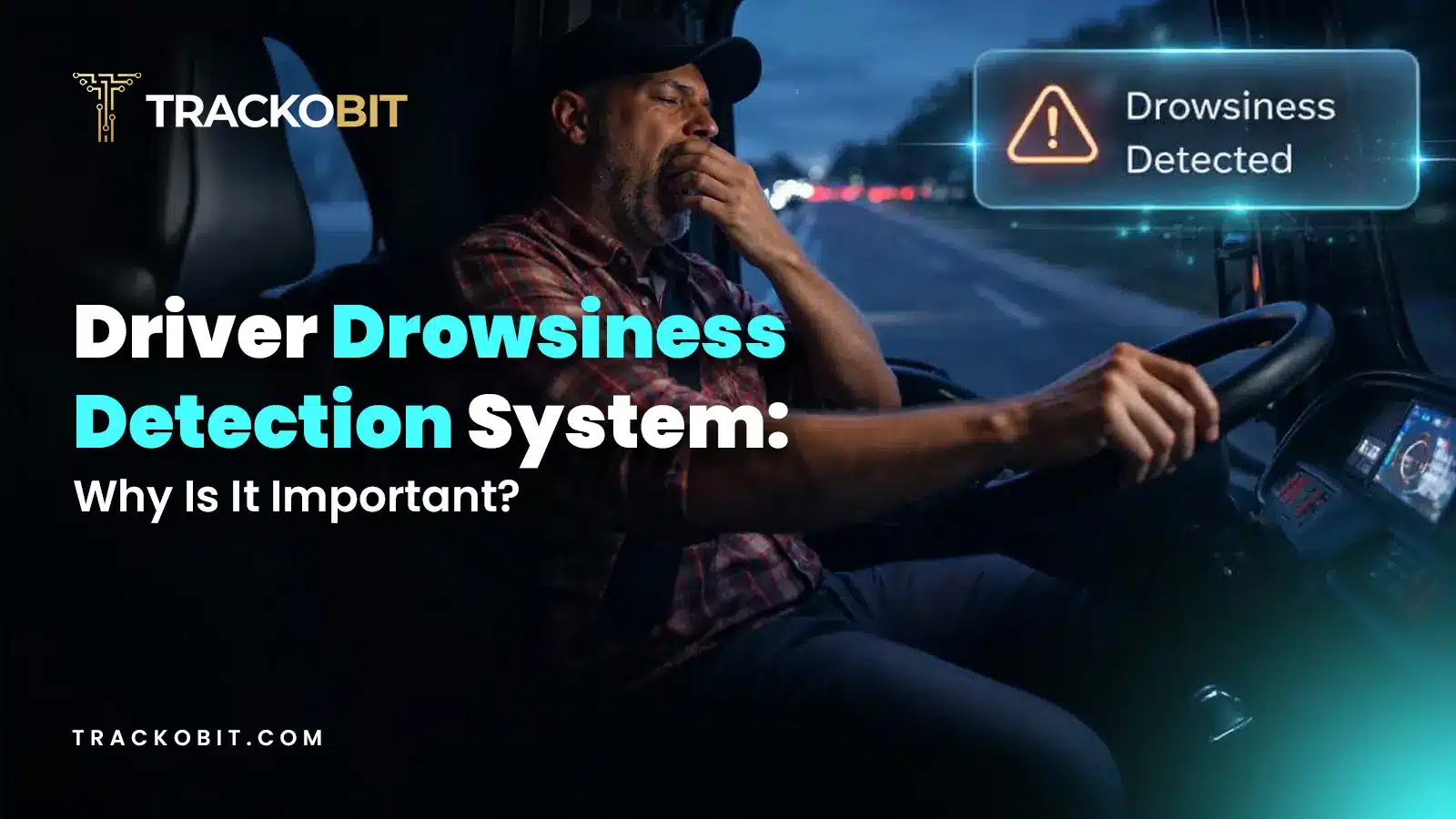
Why is Driver Drowsiness Detection System Important for Fleet Management?
Shemanti Ghosh February 4, 2026A driver drowsiness detection system is critical for fleet management. It helps prevent fatigue-related accidents and reduces operational risks through…
-
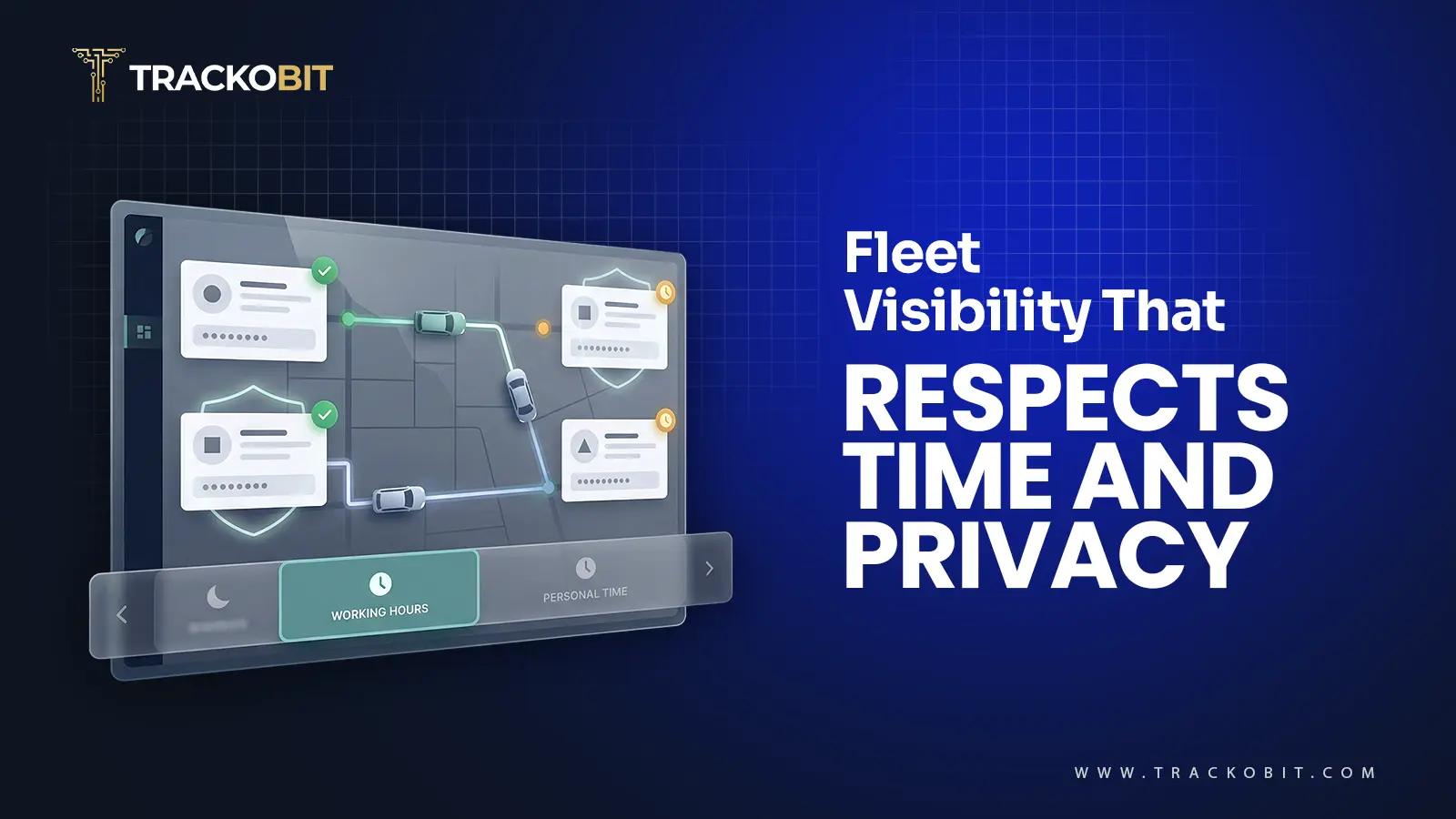
When Tracking Needs a Clock: Rethinking Fleet Visibility
Tithi Agarwal December 24, 2025Read on to understand why fleet tracking works better when it follows working hours. Because visibility should support operations, not…
-

What Makes TrackoBit’s Video Telematics Software Truly Next-Gen?
Shemanti Ghosh December 17, 2025TrackoBit’s video telematics software blends smart video intelligence with full server control. The result? Superior fleet reliability and safety.
-
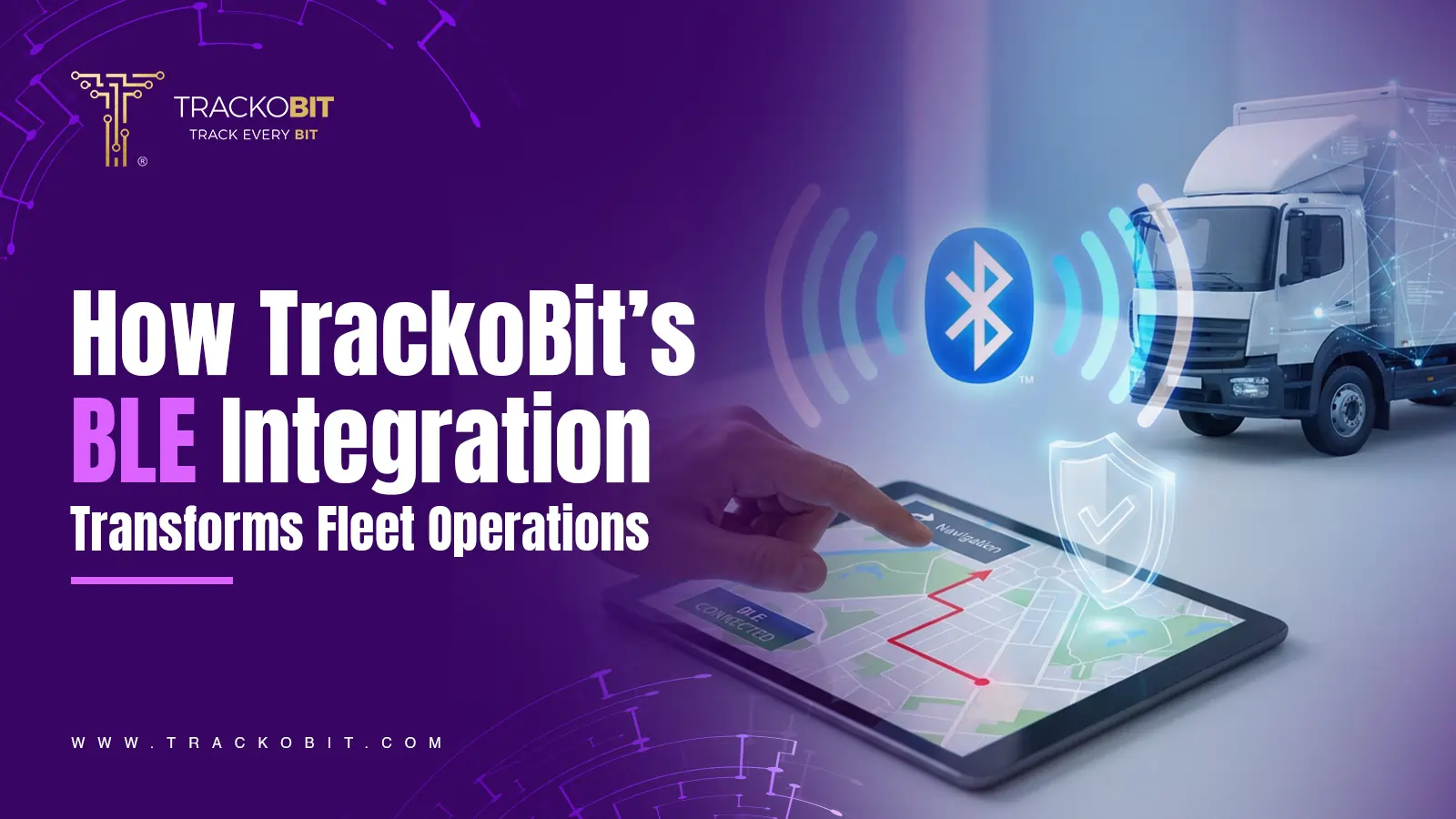
Plug, Pair, Perform TrackoBit Introduces BLE Sensor Integration
Tithi Agarwal November 26, 2025TrackoBit’s BLE Sensor Integration enables wireless, real-time monitoring with faster installs and accurate insights. It improves fleet efficiency, visibility, and…

Subscribe for weekly tips to optimize your fleet’s potential!
Your inbox awaits a welcome email. Stay tuned for the latest blog updates & expert insights.
"While you're here, dive into some more reads or grab quick bites from our social platforms!"Stay Updated on tech, telematics and mobility. Don't miss out on the latest in the industry.
We use cookies to enhance and personalize your browsing experience. By continuing to use our website, you agree to our Privacy Policy.



































